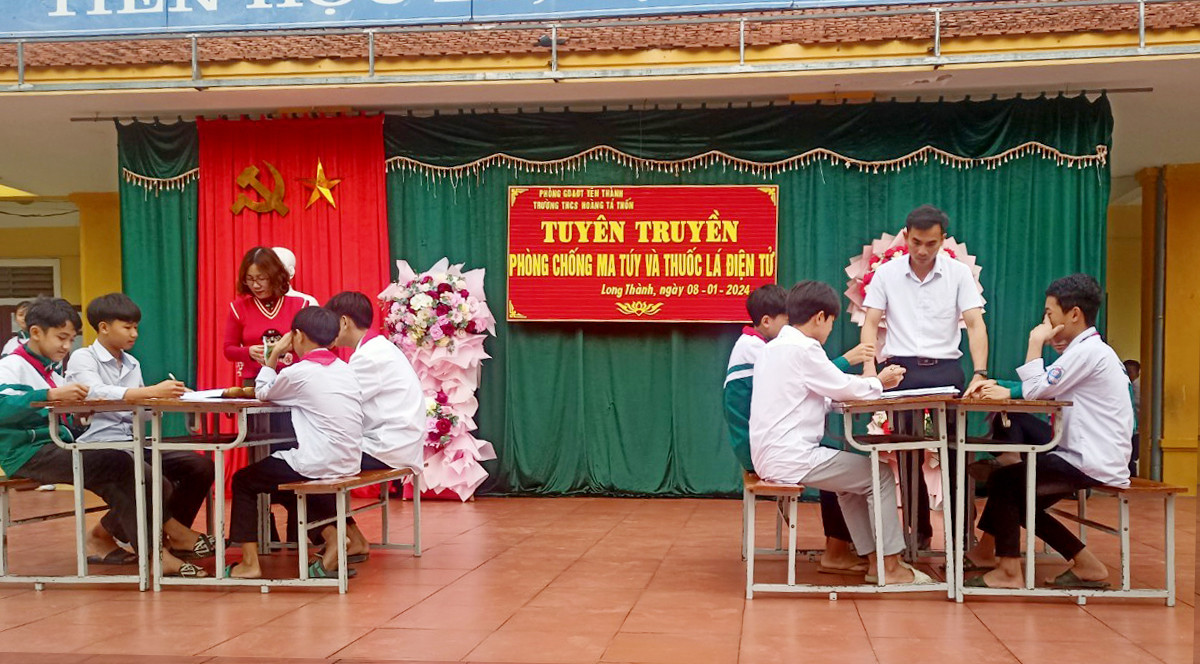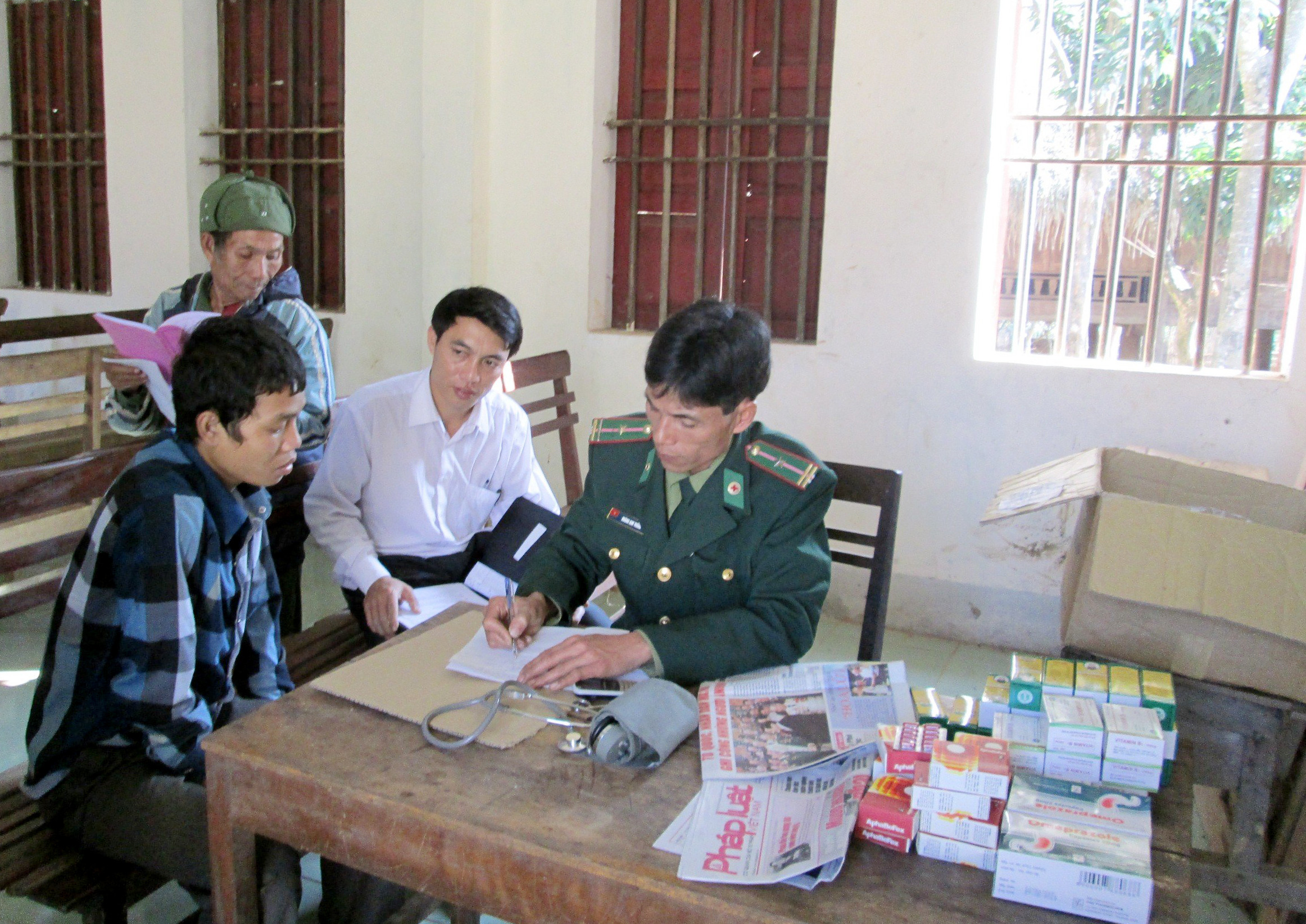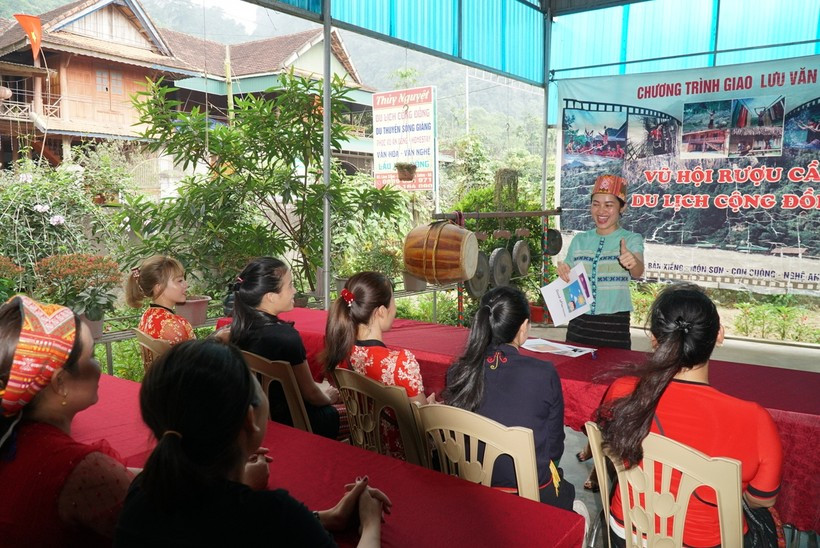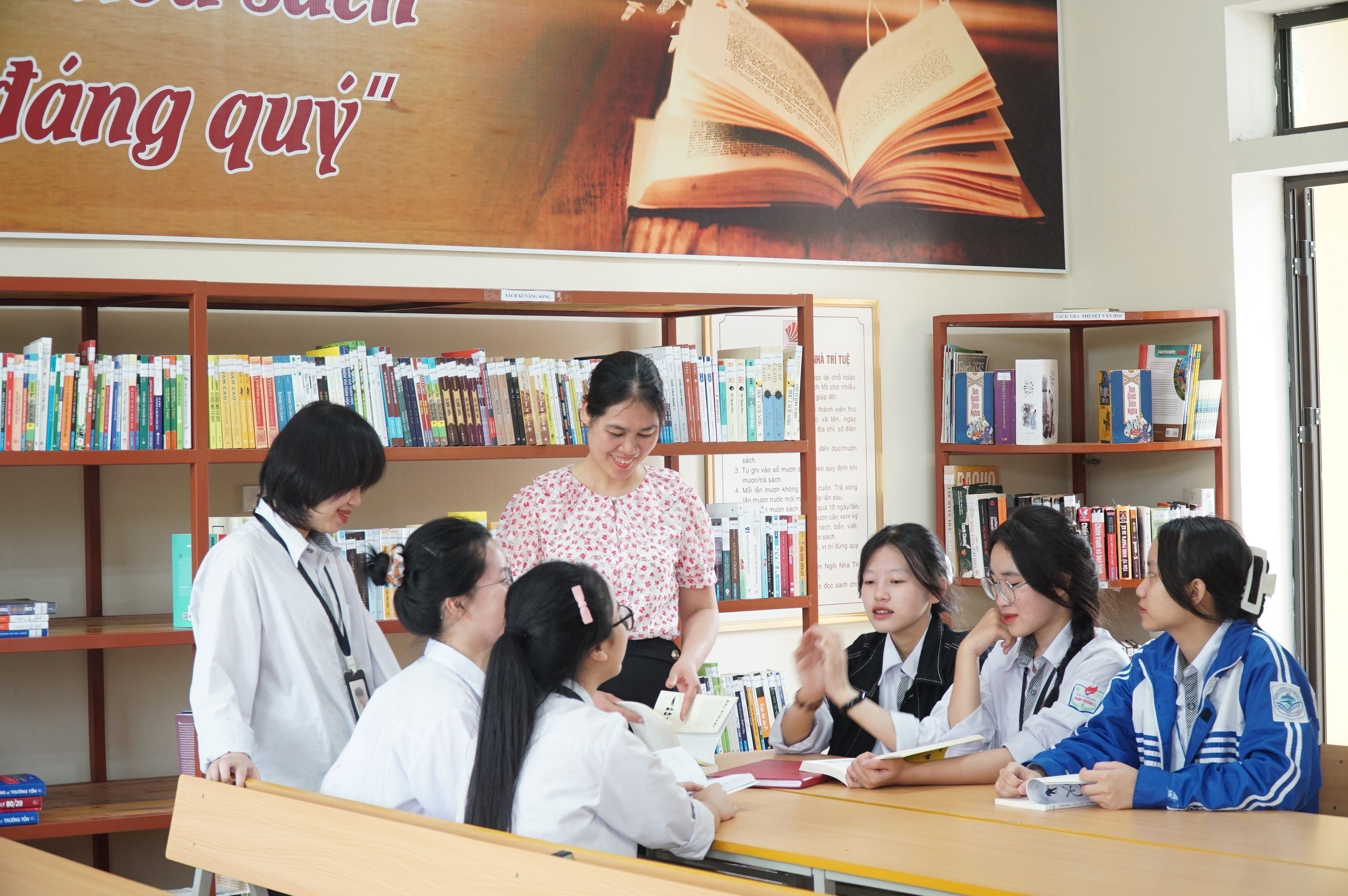There needs to be mechanisms and policies to support community learning centers.
(Baonghean.vn) - Developing the community learning center model is considered an inevitable trend to implement literacy programs, post-literacy education and human resource training for localities. However, for the centers to be effective, they need to have their own mechanisms and policies.
Informal classes...
For many years now, the connection between Hoang Ta Thon Secondary School (Long Thanh Commune, Yen Thanh District) and departments, branches and commune authorities to carry out activities has not been a strange thing.
Most recently, on Monday morning of the first week of January 2024, the school coordinated with the Commune Police and the Youth Union to organize a propaganda session on preventing and combating smoking and electronic cigarettes in schools. In addition to organizing at school, the school also worked with a number of related units to organize study sessions at the community learning center in the commune, such as organizing the Lifelong Learning Week, implementing educational topics...

As the teacher in charge of this activity, Ms. Nguyen Thi Thanh Mai - Hoang Ta Thon Secondary School said: My main duty is to teach Music and I am also assigned to do community education work. Although I have to take on more responsibilities, I find this work practical, because it receives the participation of a large number of students and the masses.
At the age of 49, teacher Cao Chi Thanh - a teacher at Chau Cam Ethnic Boarding Secondary School (Con Cuong) has also spent nearly 10 years working as a part-time teacher at a community learning center. Coming to this job with love, every week in addition to 14 teaching hours and working at the school, the remaining time is spent in the community class in Chau Khe commune.
Speaking more about his work, Mr. Thanh said: The school created conditions for me not to have to go to class on Mondays and Friday afternoons to support the commune in organizing classes in the community. In addition, the District Department of Education and Training also assigned me to do consulting support work for some other communes such as Mon Son, Yen Khe, Chi Khe to open classes. Through many years of working in this field, I see that the needs of the people are very large. To meet the people's wishes, in addition to organizing classes on 6 main topics including law, life skills education, science and technology transfer and agricultural production, health care... we also have to be flexible in the implementation process.

According to Mr. Thanh, it is called a community class but in reality it is not like that: Our class is sometimes organized in the commune with a few dozen participants, but sometimes the class has only a few people, right on the rice field being planted, to each family or sometimes it is organized right after the village meeting. Teachers do not necessarily have to be university graduates, have qualifications but sometimes they are good farmers, have experience and they will be the "real people, real work" reporters of the class.
There needs to be a mechanism for investment and support.
Community Learning Centeris a new educational model, a non-formal educational institution built in communes, wards and towns to satisfy the lifelong learning needs of people in the community.
In Nghe An, realizing that developing community learning centers is one of the important solutions to create a learning social movement and learning opportunities for everyone, in recent years, community learning centers have continuously developed in terms of scale, facilities, quality and educational effectiveness.

Currently, apart from Ky Son district, where the centers have been dissolved, 20/21 districts in the province still maintain 439/460 communes, wards and towns with community learning centers. According to the assessment of the Education sector, if communes, wards and towns have developed socio-economic conditions, the activities of the centers are relatively effective, with a variety of forms of operation; some initial operating models have affirmed their position, functions and tasks as regular education and lifelong learning facilities of the locality.
Typical examples include the "Intellectual House" model in Thanh Chuong and Yen Thanh districts; the "Community Foreign Language" Club model in Mon Son commune, Con Cuong district; the "Multi-purpose Community House" model (with people voluntarily building facilities, calling on a number of retired officials, civil servants, public employees and artisans to support the people).

In addition to the achievements, the activities of community learning centers are facing their own difficulties. In Yen Thanh district, community learning centers currently attract over 160,000 participants each year.
However, through the actual implementation, Mr. Tran Xuan Tinh - Head of the Department of Education and Training of Yen Thanh district said that there are some centers that are not really effective, still too formal, the plan is still general and not close to the local reality. Besides, the working conditions of some centers are not guaranteed. This reality also occurs throughout the province, because currently, only 89/439 centers have their own office, 325/439 community learning centers are equipped with computers (of which, 368 centers are connected to the Internet).
The center's annual operating budget of only 25 million VND is too little compared to the people's learning needs. In addition, the allowance for part-time work for staff participating in center management was cut from July 1, 2023, which has seriously affected their working mindset. Moreover, if I were a teacher, I think there should be a separate mechanism for teachers who also do community work, such as reducing the number of classes at school to have more time for work in the commune.
Regarding this content, recently, in his speech at the Scientific Workshop on the development of community learning centers, Mr. Nguyen Van Khoa - Deputy Director of the Department of Education and Training also pointed out a number of difficulties and shortcomings, especially in remote communes. Because here, although the cultural level, professional level, and life skills of workers are low, non-formal education forms are not given due importance, not organized into a tight system, the content and methods of operation are still monotonous and inflexible, so they are not suitable and do not meet the needs of learners. Some places are still passive and ineffective.

The Department of Education and Training also said that currently, the budget to support the centers' operations is being implemented according to Circular No. 96/2008/TT-BTC dated October 27, 2008, with the budget to support the purchase of initial equipment for newly established centers being at least 30 million VND; the budget to support the payment of allowances for staff participating in management work, the budget to support the purchase of additional documents, textbooks, and teaching and learning materials annually from 20-25 million VND/center/year is still low.
Therefore, for the centers to operate sustainably and effectively, there must be appropriate and highly practical mechanisms and policies. To do so, it is necessary to review, propose to build, amend and supplement mechanisms and policies, create favorable conditions for organizations and individuals to access or create learning opportunities for all people, in which, focusing on mechanisms and policies to attract organizations, businesses and individuals to participate in opening classes and vocational training facilities for disadvantaged groups.
In addition, it is necessary to encourage and mobilize enterprises to build a "Lifelong Learning Fund" to organize lifelong learning activities and support employees in studying, retraining and regular training. On the part of Party committees and authorities at all levels in issuing resolutions and policies, it is necessary to pay attention to investing in facilities, funding, equipment and personnel participating in teaching for community learning centers./.


